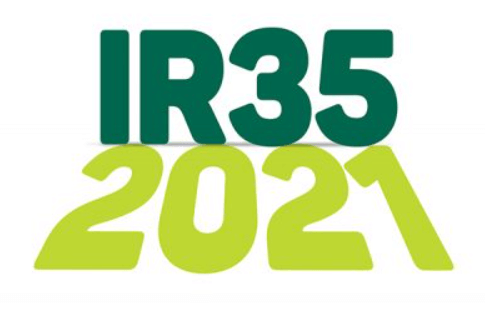IR35: How this could affect you and your company
Understanding the implications of IR35 for Company Directors
IR35 also known as the Intermediaries Legislation, came into effect in April 2000 in an attempt by the government to prevent tax avoidance. It was based around the premise that independent contractors were able to avoid tax payments by working through an intermediary such as their own limited company, rather than as employees under the PAYE scheme.
What is ‘disguised employment?’
When an employee leaves work on a Friday and returns as a contractor on the Monday, carrying out the same work but no longer paying as much tax, this is known as ‘disguised employment.’
This also benefits the former employer who no longer has to make Employers’ National Insurance contributions, or make available any employment benefits or rights.
The legislation aimed to identify disguised employees by introducing a test for employment status. If this is failed a contractor may have to pay tax and National Insurance contributions as if they were an employee.
Testing for employment status
HMRC recently introduced a new tool to determine employment status, a contract can be used to indicate whether a contractor is employed or self-employed. By looking over the rights the person has. Such as:
Control: can they decide your own hours of work?
Right of substitution: can they appoint another person to carry out the work if you are not available?
Mutuality of obligation: is there an obligation for the client to offer you work?
Employment rights: Is holiday or sick pay mentioned?
To be viewed as self-employed, you should avoid being seen as ‘part and parcel’ of your client’s firm.
Changes to IR35 legislation in 2017
Due to the complexity of the IR35 rules making them difficult to understand, the government decided to make changes in 2017.
HMRC believe there are many cases where, if it wasn’t for the existence of a limited company, i.e. a personal service company that acts as intermediary, directors would be classed as an employee of their client.
Historically, the responsibility for deciding whether IR35 rules apply and for paying the correct amount of tax, lay with the contractor. In April 2017 , for those working in the public sector only, responsibility shifted to the end-client.
The new online Employment Status Service Tool provided by HMRC asks questions regarding various aspects of a contract, such as whether there is a right of substitution, and the public sector client has 31 days in which to determine a contractor’s employment status.
What does this mean for company directors?
This new process presents a danger to company directors running their own personal service company. Apart from the significant loss of earnings for company directors, it is feared that, in turn, this could trigger an IR35 tax investigation by HMRC into previous contracts going back many years.
So what happens when a contractor is deemed to be ‘inside IR35’ and subject to the legislation?
HMRC will look at each contract, deduct the tax that has been paid from what an employee would have paid through PAYE, and backdate this tax charge to the contractor.
How IR35 rules lead to company insolvency
This process can cause financial hardship, and easily result in insolvency for the personal service company involved. HMRC have the power to look back at contracts for at least six years to see if contractors/company directors fall within IR35 rules. They can also apply IR35 to previous contracts already completed.
Even if you think that IR35 does not apply, HMRC can still launch an investigation, causing disruption and expense. Intermediaries Legislation is an extremely complex area, and requires the input of an IR35 specialist to help you deal with them should you be targeted.
How can Lucas Ross – Business Rescue, Recovery and Insolvency help you?
Here at Lucas Ross, we have a team of specialist trained advisors who would be happy to give you a free, no obligation virtual meeting to explain your best options. We have supported a number of groups and associations affected by the IR35 changes. If you are worried or simply would like to understand your options, then contact us direct on 0330 128 9489 or email us at help@lucasross.co.uk





